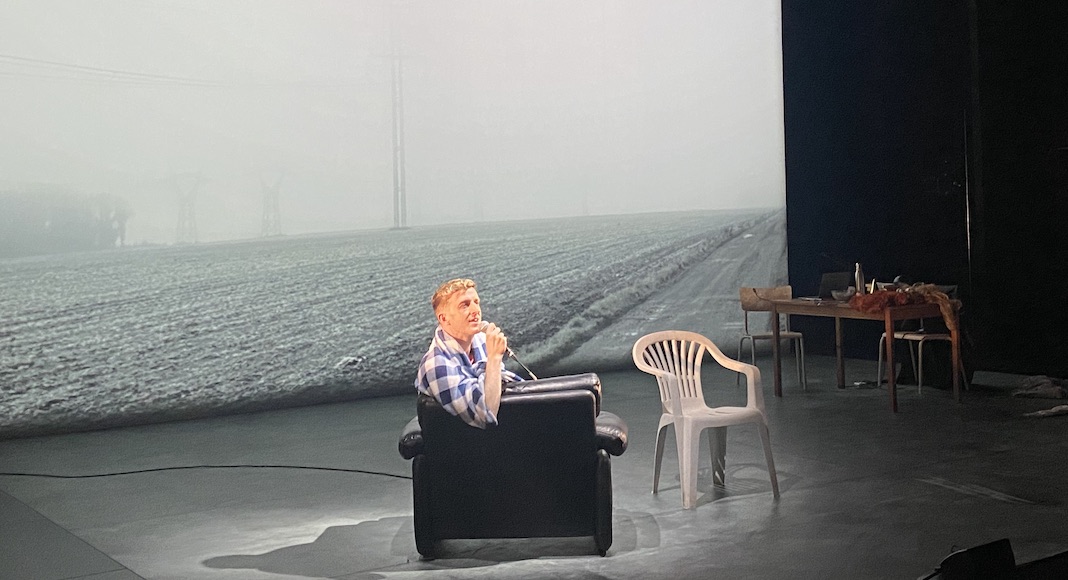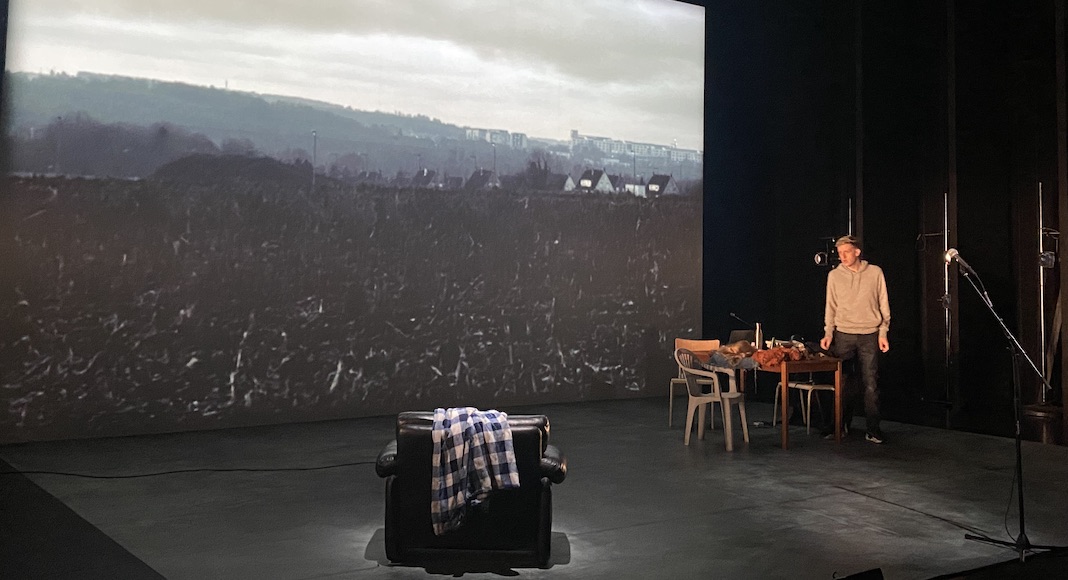Edouard Louis, who became known as Eddy Bellegueule, has already written three highly successful books in France, in which he depicts the homophobia he suffered as a child in a working-class environment in the north of France. But this time he is taking his first steps on stage in New York, at the theater St. Ann’s Warehouseto interpret his own character in the last work he published, Who killed my father. The staging is by Thomas Ostermeyer, who had already produced the adaptation of the first two books in 2019, but with other actors.
The title is not a question but an affirmation and, as in the book, the novelist strives to tell significant stories from his childhood to finally attribute the responsibilities for the construction of a racist and homophobic man. Which remains despite everything touching in its contradictions and frustrations.
plain text
Upon entering the theater, Edouard Louis is seated in a rather uncluttered setting, writing on a computer what is probably the manuscript of this book. In the background, a video projection of dark and foggy roads in the North passing by car, at night. The novelist begins to tell, with a fairly slow flow, several more or less painful anecdotes from his childhood, in French with English subtitles on the screen. He moves to another mic, then back to the front of the stage, and begins staring intently at that empty leather chair, which we understand to be his father’s.
The tension rises when he evokes a show that he improvised as a child with his friends: he dances to “Barbie girl”, insists with his father ” Dad, look », but the latter is mortified in front of his friends. The fall is not what we expect because, we understand throughout the play, this character of the father is eaten away by his own violent childhood, a virile upbringing which excludes any behavior qualified as “feminine” from the from a man, including cross-dressing and dancing. And it is to free himself from this shackles of childhood that Edouard Louis hastily disguises himself to interpret Barbie Girl or even the song from Titanic, and suddenly change the tempo of a rather dark room.

The weight of masculinity
If the first two books by Edouard Louis attributed to his father and his family the trauma of a difficult and violent childhood, the writer endeavors here to trace the history of his father, realizes that he was himself confronted with these injunctions of masculinity. Instructions that he himself internalized, such as: being a man means not crying, not going to school and going to work in the factory to feed his family. He realizes that the latter has tried to escape this clear path, spent a few months in the South but ended up returning to the same village in the North of France. As if it were impossible to build another course, that he could not escape his class, this life of a slave laborer such as his father lived before him. The only difference is that the writer’s father, a victim of paternal violence, swears never to hit his children. ” Violence does not always produce violence “, argues Edouard Louis.
Power in the dock
One day, this worker father has an accident at the factory, is ” crushed, crushed by a heavy object and becomes invalid. The words are not chosen at random because in this last part of the play, Edouard Louis explains how the cogs of power marked the very body of his father. He then disguises himself as a magician and launches into an indictment against all the last French presidents – from Chirac to Macron, via Sarkozy and Holland – who have each in turn defunded medication for his father, or lowered the cost of 5 euros by 5 euros. minimum integration income, judging that it made no difference. ” They have no idea”, he repeats angrily. He hangs up the photos of these presidents and their ministers, and proclaims for each of them: ” Jacques Chirac destroyed my father’s intestines “. This is indeed the final thesis of the writer: power directly marks the body, the flesh of enslaved citizens, and they are all responsible for the fate and state of health of his father.
Asked during a Q&A after the play about his feelings in front of an American audience, Edouard Louis explains the importance of analyzing the class phenomenon, which Americans often deny. ” A person told me yesterday that the class did not exist and that we just had to face reality. Meanwhile, someone was serving him his glass of water. Class systems are everywhere, even in the United States, and power is deciding for your bodies.. A theme that is certainly particularly topical on this side of the Atlantic.
Who killed my father, until Sunday, June 5 at St. Ann’s Warehouse.
–


